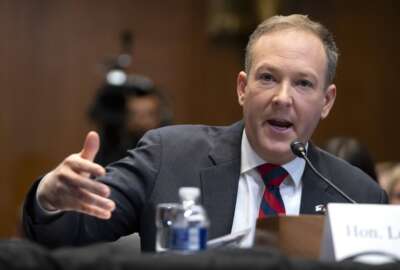Senate committee passes bills on improper payments, whistleblower protections
The new bill, passed in the Senate Homeland Security and Governmental Affairs Committee, would require more consistent reporting of improper payments by federal...
This story has been updated from its original version.
By Jolie Lee
Federal News Radio
The Senate Homeland Security and Governmental Affairs Committee passed three bills today to combat wasteful spending in government, strengthen federal whistleblower protections and improve interagency communications with a rotational program.
Wasteful spending
The Improper Payments Elimination and Recovery Improvement Act of 2011 expands on legislation passed last year to eliminate improper payments.
The new bill would:
- Require more consistent reporting of improper payments and eliminate voluntary disclosures by contractors.
- Create a “Do Not Pay List” of contractors who have been convicted of fraud or for a similar reason.
- Improving data on deceased beneficiaries.
- Set up a pilot program that uses private companies to help agencies identify improper payments.
Improper payments totaled $125 billion last year, according to a release from the Senate committee.
“Although we have made great strides in curbing improper payments in the past year, we still have a ways to go to improve transparency and make agencies and agency leadership more accountable for better protecting the scarce taxpayer dollars we entrust them with,” said Sen. Tom Carper (D-Del), sponsor of the bill and chairman of the Subcommittee on Federal Financial Management, in a statement. “At a time of record deficits, we need to be getting the most out of every tax dollar.”
Whistleblower protections
The Whistleblower Protection Enhancement Act of 2011 extends protections to the intelligence and national security communities.
The bill, sponsored by Sen. Daniel Akaka (D-Hawaii), also allows agencies’ Office of the Inspector General to appoint a Whistleblower Protection Ombudsman.
Also, an agency could not revoke a federal employee’s security clearance in retaliation for protected whistleblower activity.
The National Treasury Employees Union said the bill’s passage in the committee was “an important step” for government whistleblower reform.
Employee rotations
A bill co-sponsored by Homeland Security Committee Chairman Sen. Joe Lieberman (I-Conn.) would permit the temporary rotations of some national and homeland security employees to other agencies as a way to “break down government stovepipes and improve communications,” according to a release from Lieberman.
The Interagency Personnel Rotation Act of 2011 would make such rotations a requirement in order to enter the Senior Executive Service.
“Threats such as terrorism, nuclear and biological weapons proliferation, insurgencies, failed states, and organized crime know no borders and are beyond the capability of any single agency of our government,” Lieberman said in the release. “Our bill will promote integration among national and homeland security agencies to help counter these 21st century threats.”
Copyright © 2025 Federal News Network. All rights reserved. This website is not intended for users located within the European Economic Area.





